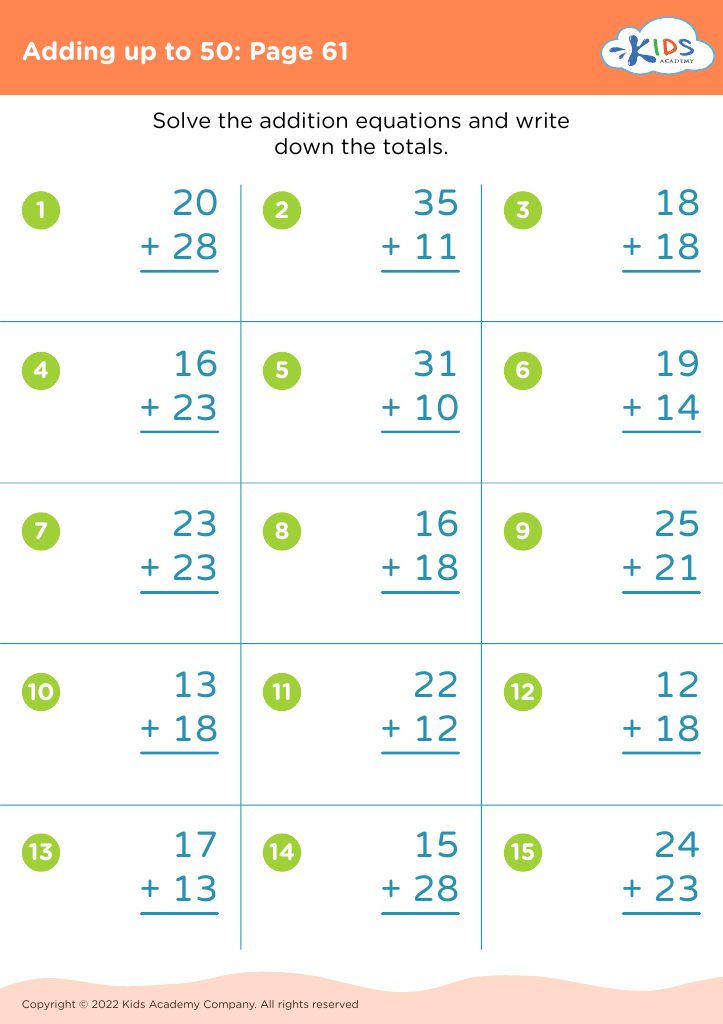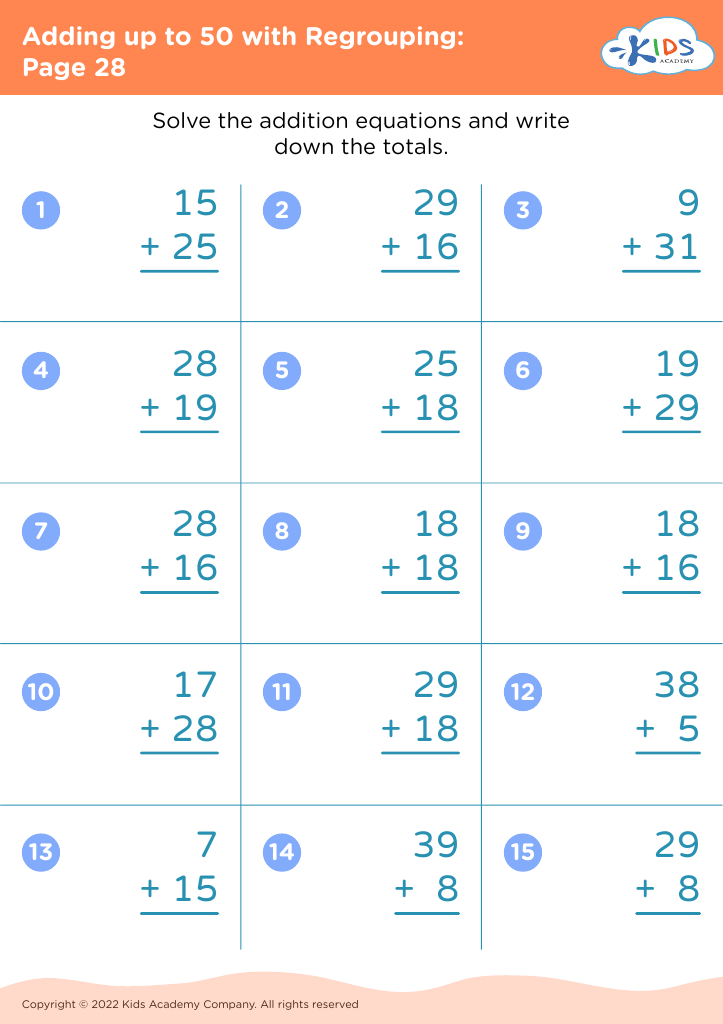Addition skills Adding up to 50 Worksheets for Ages 4-7
7 filtered results
-
From - To
Our "Addition Skills: Adding up to 50 Worksheets" are specially designed for kids aged 4-7, providing them with the tools to master addition in a fun and engaging way. These printable worksheets enhance basic math skills, helping young learners add numbers up to 50 with ease and confidence. Each activity is crafted to be visually appealing and interactive, ensuring that children remain motivated and interested. Perfect for both classroom use and extra practice at home, our worksheets support the development of essential math foundations, setting kids up for future success in more advanced arithmetic challenges. Download and start adding fun to learning today!
Parents and teachers should prioritize addition skills for children aged 4-7, especially skills that include adding up to 50, as these foundational arithmetic abilities are crucial for early cognitive development and future academic success. At this developmental stage, children's brains are highly receptive to learning basic numerical concepts. Mastering addition enhances problem-solving abilities and logical thinking, which are essential skills not only for math but for all subject areas.
Moreover, fostering strong addition skills at a young age encourages confidence and a positive attitude towards mathematics. This early success can promote a lifelong interest in the subject, which can be a significant determinant of their educational trajectory. Arithmetic is also fundamentally integrated into daily life activities, from counting toys to understanding money, making it a practical skill that aids in everyday tasks.
Introducing and practicing addition up to 50 prepares children for more complex mathematical concepts they will encounter in later grades, such as subtraction, multiplication, and division. By embedding a solid arithmetic foundation, parents and teachers can ensure a smooth progression in a child’s mathematical education, preventing future struggles and promoting a continuous thread of learning and achievement.



















